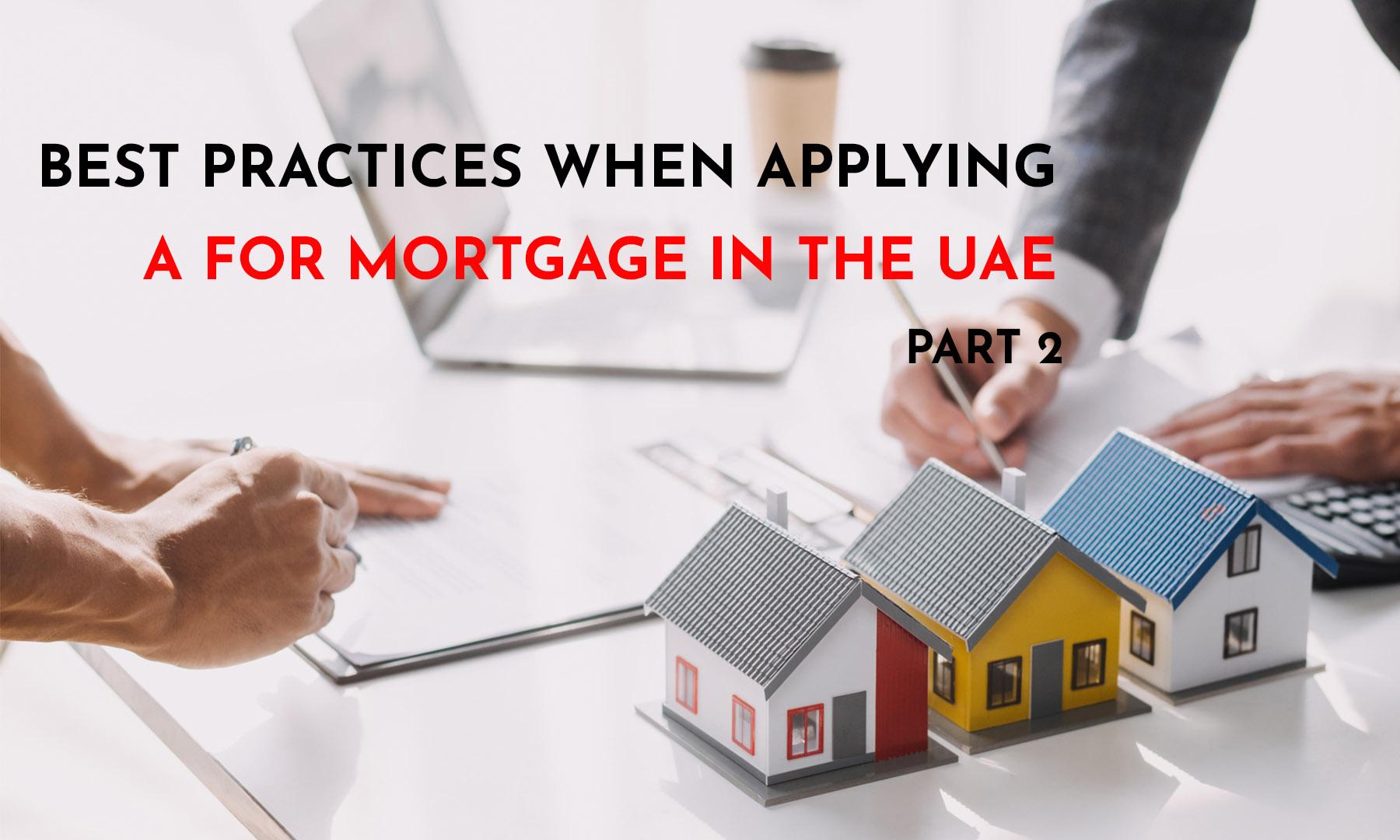BEST PRACTICE WHEN APPLYING FOR A MORTGAGE IN UAE – PART 2

Mortgages are more than just a pathway to owning a home; they represent a significant financial commitment over a period of time. In Dubai, with its dynamic real estate market, understanding this commitment becomes even more essential. Potential borrowers must be aware of the financial implications, interest rates, and other associated costs to make informed decisions.
Given the ever-changing nature of the economy, both property values and interest rates can fluctuate. This means that understanding how these factors impact a mortgage is vital for anyone looking to secure a home loan in Dubai, whether they’re current homeowners or first-time buyers.
In this blog, we’ll explore two best practices for availing mortgages in the UAE. We aim to equip you with the knowledge and tools needed for effective management of your mortgage, ensuring a smooth and beneficial homeownership journey.
1. Maintain a positive AECB Rating.
The AECB rating is becoming increasingly important for banks when assessing mortgage applications. Currently, its main function is to help banks check for any defaults and to understand your overall financial commitments. However, there’s an emerging trend where this rating might soon play a more significant role in determining loan eligibility.
It’s beneficial to be aware of factors that can influence your AECB rating. For instance, holding multiple credit cards with high balances can impact your score, even if you don’t use them regularly, it’s advisable to reduce balances on these cards.
The aim is to minimize your outstanding debts, positioning you better for future financial opportunities. Additionally, the AECB is expanding its evaluation criteria. Beyond just looking at EMIs and major financial defaults, they’re now considering other repayment histories, such as EVA.
2. Monitor your Bank Margin
One of the best practices when evaluating your mortgage terms is to monitor the bank margin closely. This percentage, when added to base rates like the EIBOR, determines your overall interest rate, and being aware of it can lead to significant savings over time.
In a dynamic financial landscape, EIBOR can vary due to a variety of factors, from global economic shifts to local policy changes. The bank margin, however, typically remains constant over the agreed period. This means that even slight variations in Ebore can lead to noticeable changes in the interest rate you’re charged.
So, what’s the best practice here? Regularly revisit and familiarise yourself with the bank margin tied to your mortgage. This knowledge equips you to anticipate potential rate changes better and to make informed decisions when considering refinancing or other mortgage-related actions.
Parting Thoughts- Navigating the mortgage landscape in Dubai can seem like a daunting task, given its dynamic nature and the multitude of factors to consider. By understanding and implementing the best practices we’ve discussed, you position yourself to make the most of your mortgage, ensuring it aligns with your financial goals and lifestyle.
At My Mortgage, we’re committed to guiding you through this journey. Our expertise in the Dubai real estate market, combined with a deep understanding of mortgage intricacies, ensures that you’re always making informed decisions. Whether you’re a first-time buyer or looking to refinance, our team is here to provide the insights and support you need.